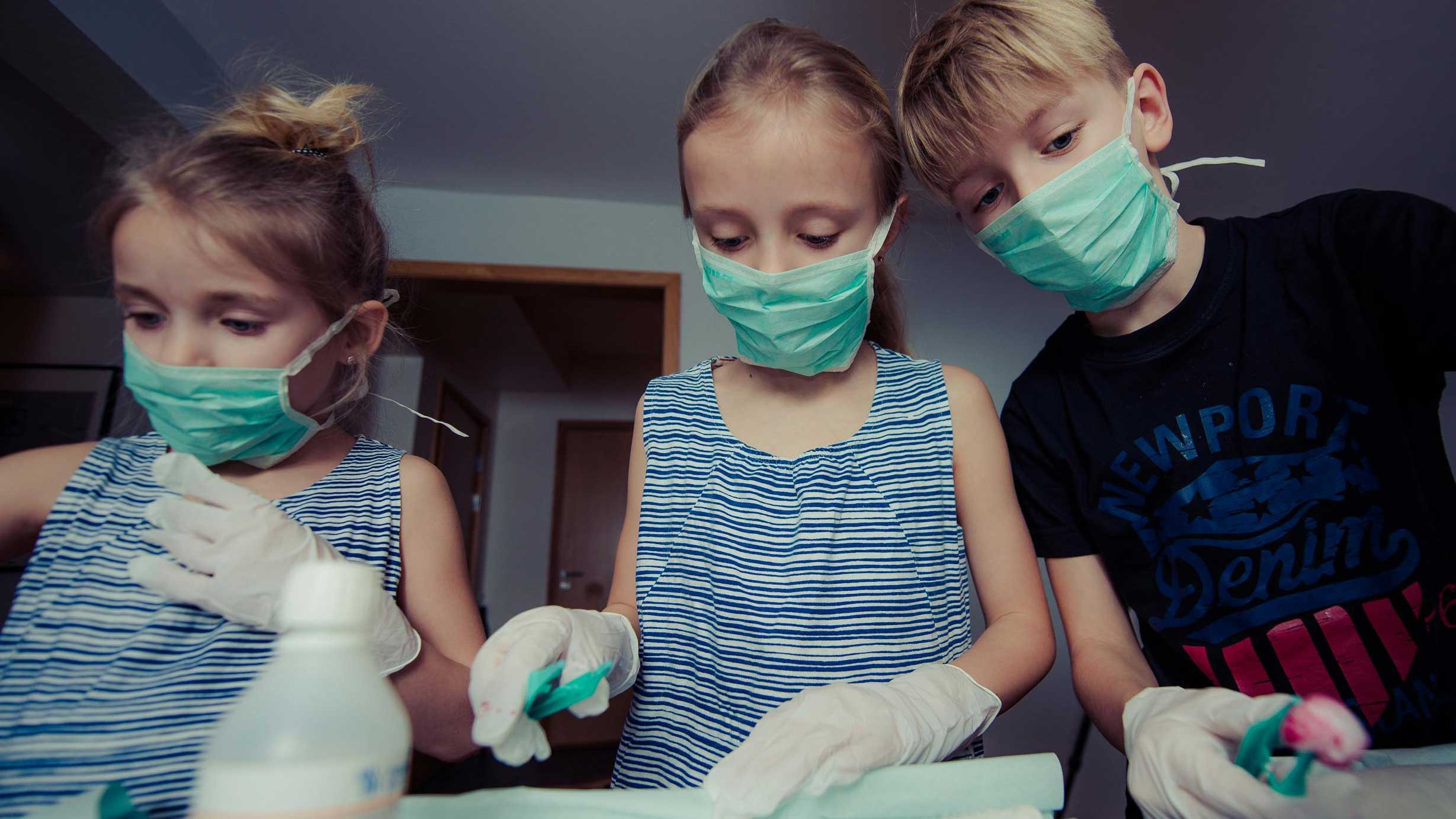

Play therapists warn that COVID-19 is an ongoing trauma, even though the world wants to move on

Many children are still struggling to process feelings of fear and insecurity, which stem from the COVID-19 lockdowns, in a world that has largely stopped discussing the pandemic, a new study says.
The findings come from the largest ever international study of play therapists: specialist practitioners who use the therapeutic power of play to help children cope with difficult feelings and experiences, such as trauma.
Researchers at the University of Cambridge found that as recently as 2023, 42% of these therapists were still observing children referencing the pandemic during play therapy sessions Children played out scenarios such as administering vaccines to imaginary patients, placing face masks on toys to ‘protect’ them, or saying goodbye to a dying relative.
There was little evidence that any of these scenarios were resolving negative emotions about the pandemic. This suggests that children could still be struggling with unprocessed experiences, some dating back almost five years.
The potential mental health effects include social anxiety, separation anxiety, or emotional regulation difficulties. More than half the therapists said they were still seeing at least one child who was experiencing such challenges that were also explicitly linked to experiences during lockdown. Most of the therapists considered the pandemic a “collective trauma”. While many adults seem to have responded to that trauma by trying to forget about it, the study argues that children may not find doing so straightforward. For some, fears and uncertainties which developed at a time of lockdowns and escalating death rates could still feel very present.
For some children, the pandemic is a continuing story.
The study was led by Dr Sydney Conroy, a qualified play therapist, as part of her doctoral research at Cambridge’s Faculty of Education.
“Play is essentially a language through which children express themselves, and play therapists are almost uniquely positioned to share insights into their inner world,” Conroy said.
“When COVID-19 began, there was a lot of dramatic commentary about how it might affect mental health, but we have now almost distanced ourselves from that conversation. We need to recognise that for some children, the pandemic is a continuing story. It is not necessarily over for them, even if many people have decided it is.”
The study examined both how the pandemic affected play therapy, and what play therapists’ observations reveal about its mental health impacts.
Conroy conducted a 26-question survey of 490 therapists in 25 countries, including the UK, Ireland and the United States, between December 2022 and June 2023. This represents a significant sample, since the overall numbers of play therapists internationally are relatively low.
The persistence of pandemic-related play, long after lockdowns ended, echoes earlier research showing that many children used play as a coping strategy when COVID-19 was at its height. One such study, for example, observed that games of “coronavirus tag” were common once children were allowed to play together outside.
Using a standard professional framework, Conroy asked the participating therapists to identify themes they saw emerging from COVID-related play. The most frequently reported theme was anxiety (63% of cases), followed by safety and security (54%), chaos and instability (48%), power and control (47%), grief and loss (43%), separation (35%), and protection (34%). These were reported more than twice as frequently as themes associated with recovery, such as integration (6%), reparation (4%), or resilience (18%).
“As a therapist, you are always looking for moments that suggest a problem is being resolved – perhaps a new dynamic in the play that shows this,” Conroy said. “When it came to play that involved pandemic symbols or storylines, we found that these are typically associated with negative feelings rather than suggesting children feel capable and confident with their experiences of the pandemic. While it’s possible they are finding resolution elsewhere, it is as likely that these negative feelings are unresolved.”
Most therapists (75%) agreed the pandemic qualified as a “traumatic event” and 69% considered it a “collective trauma” that transcended communities.
Many had incorporated items like masks, sanitisers, or toy doctors’ kits to their play therapy toy collections during the pandemic, and around half were still using them at the time of the survey. Strikingly, however, almost 10% had removed those items.
The study observes that this is very unusual behaviour. Play therapists rarely remove toys from their collections, even if infrequently used, in case they are needed for specific cases. The report suggests the decision may be linked to the therapists’ own wish to move on from the pandemic like so many others.
The research also suggests that there is a broader disconnect between how adults have handled the collective trauma of COVID-19, and how children are responding. One therapist told the researchers: “Some people may underestimate the impact for children because it became normal. They feel everyone went through it, so children should be OK, or know how to cope.”
The study argues that play therapists are uniquely positioned to respond to this challenge, and recommends the development of tailored guidance on how they might do so. The authors add: “There is a strong case for adapting playrooms as spaces to process that from which the rest of the world has moved on. This could be vital for allowing children to use play to express experiences that they may still be struggling to process."
A second recommendation is that play therapists may need to be more mindful of their own response. The study suggests some may be experiencing “countertransference”: a phenomenon in which their own emotions, such as emotional exhaustion from dealing with the pandemic, affect their work with clients.
The study also emphasises the potential for play therapists to support parents, teachers, and childcare providers, by offering insights that can help them better understand children’s experiences. In this sense play therapists are also becoming more generalist “trauma educators” in the post-COVID world.
The findings are published in the International Journal of Play Therapy.